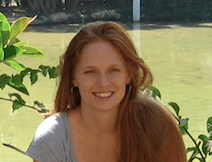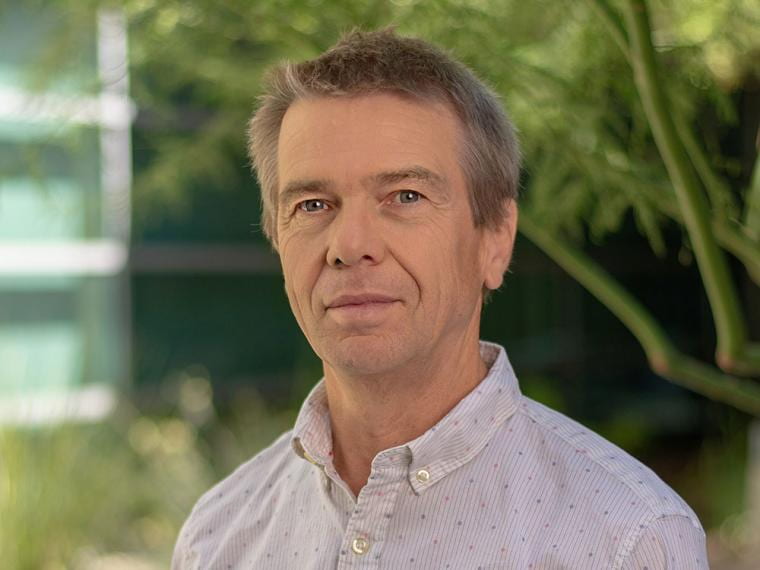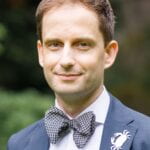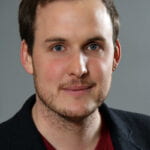 Sally Sadoff is an Associate Professor of Economics and Strategic Management at the UC San Diego Rady School of Management. Her research in applied microeconomics is focused on behavioral economics, experimental economics, education and health. Prior to coming to the Rady School, she was a postdoctoral scholar at the University of Chicago. She earned her Ph.D. and M.A. in Economics from the University of Chicago and her B.A. in Economics from Harvard University.
Sally Sadoff is an Associate Professor of Economics and Strategic Management at the UC San Diego Rady School of Management. Her research in applied microeconomics is focused on behavioral economics, experimental economics, education and health. Prior to coming to the Rady School, she was a postdoctoral scholar at the University of Chicago. She earned her Ph.D. and M.A. in Economics from the University of Chicago and her B.A. in Economics from Harvard University.
Spring 2022
Weekly Seminar: Andreas Blume, “Mediated Talk: An Experiment”, Thursday, April 28, 2022
 Andreas Blume joined the Eller College of Management in 2012. Prior to joining Eller, he taught at the University of Iowa and the University of Pittsburgh. He earned his PhD in Economics from the University of California-San Diego in 1989. His current research focus is on using game theoretic and experimental methods to study strategic communication with imperfectly shared languages, through noisy channels, with costly messages and on organizational coordination in environments with limited or no communication.
Andreas Blume joined the Eller College of Management in 2012. Prior to joining Eller, he taught at the University of Iowa and the University of Pittsburgh. He earned his PhD in Economics from the University of California-San Diego in 1989. His current research focus is on using game theoretic and experimental methods to study strategic communication with imperfectly shared languages, through noisy channels, with costly messages and on organizational coordination in environments with limited or no communication.
Weekly Seminar: Yucheng Liang, “The Inference-Forecast Gap in Belief-Updating”, Thursday, April 21, 2022
 Yucheng Liang is an assistant professor at CMU. Much of his research uses experiments to study biases in information processing and their economic implications. Yucheng studied at Peking University and Stanford Graduate School of Business, and he spent a year (remotely) at briq Institute before joining CMU.
Yucheng Liang is an assistant professor at CMU. Much of his research uses experiments to study biases in information processing and their economic implications. Yucheng studied at Peking University and Stanford Graduate School of Business, and he spent a year (remotely) at briq Institute before joining CMU.
Weekly Seminar: Eugenio Proto, “Reverse Bayesianism Revising Beliefs in Light of Unforeseen Events”, Thursday, April 14, 2022
 Eugenio Proto is Alec Cairncross Professor of Applied Economics and Econometrics at the University of Glasgow Adam Smith Business School, and Research Fellow at CEPR, IZA, CESifo. He earned his PhD in Economics at ECARES, Université libre de Bruxelles in 2004. Previously he was Assistant and Associate Professor of Economics at the University of Warwick, Professor of Economics at the University of Bristol.
Eugenio Proto is Alec Cairncross Professor of Applied Economics and Econometrics at the University of Glasgow Adam Smith Business School, and Research Fellow at CEPR, IZA, CESifo. He earned his PhD in Economics at ECARES, Université libre de Bruxelles in 2004. Previously he was Assistant and Associate Professor of Economics at the University of Warwick, Professor of Economics at the University of Bristol.
Eugenio’s recent research interests are on Behavioural and Experimental Economics, with focus on Intelligence, Personality and Psychological wellbeing. He has published in leading general economic journals, like the Journal of Political Economy, Review of Economics Studies and in leading general scientific journals like the Proceeding of the National Academy of Science and Nature Human Behaviour. His work has been featured in several main international newspapers and magazines. He is currently academic editor of PLOSONE and associate editor of the Journal of Economic Behavior and Organization.
Weekly Seminar: Frank Schilbach, “Learning in the Household”, Thursday, April 7, 2022
 Frank Schilbach is an associate professor of economics at MIT, where he teaches behavioral and development economics. Frank’s main strand of research studies the impact of poverty and its correlates on cognitive function, decision-making, and productivity. His recent work investigates the role of sleep deprivation, financial strain, alcohol consumption, and mental health in the economic lives of low-income workers in India. Frank’s second strand of work investigates knowledge diffusion within and across households.
Frank Schilbach is an associate professor of economics at MIT, where he teaches behavioral and development economics. Frank’s main strand of research studies the impact of poverty and its correlates on cognitive function, decision-making, and productivity. His recent work investigates the role of sleep deprivation, financial strain, alcohol consumption, and mental health in the economic lives of low-income workers in India. Frank’s second strand of work investigates knowledge diffusion within and across households.
Weekly Seminar: Isabelle Brocas, “Dynamic Coordination in Efficient and Fair Strategies: A Developmental Perspective”, Thursday, March 31, 2022

Isabelle Brocas is a Professor at the University of Southern California and the co-director of the Los Angeles Behavioral Economics Laboratory (LABEL) and the Theoretical Research in Neuroeconomic Decision-making (TREND) Institute. Her research is both theoretical and experimental and it revisits standard theories of decision-making to better understand how people make choices, what motivates them and what cognitive limitations prevent them from being rational. She is particularly interested in the underlying biological mechanisms that support decision-making and how they change over the life cycle.
Weekly Seminar: Peter Schwardmann, “Anticipatory Anxiety and Wishful Thinking ”, Thursday, March 10, 2022
 Peter is a behavioral economist. Much of his research is concerned with why people so frequently hold biased beliefs about themselves and the world around them. He is also interested in how biased beliefs shape outcomes in markets and affect how we communicate. His research uses both laboratory and field experiments. Prior to joining CMU, he was an assistant professor at the University of Munich (LMU). He received his PhD from the Toulouse School of Economics and completed his undergraduate studies at the University of Cape Town.
Peter is a behavioral economist. Much of his research is concerned with why people so frequently hold biased beliefs about themselves and the world around them. He is also interested in how biased beliefs shape outcomes in markets and affect how we communicate. His research uses both laboratory and field experiments. Prior to joining CMU, he was an assistant professor at the University of Munich (LMU). He received his PhD from the Toulouse School of Economics and completed his undergraduate studies at the University of Cape Town.